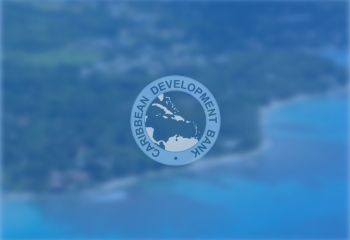Paris Alignment Statement

The lending and other operations of the Caribbean Development Bank (CDB) are consistent with the goals[1] of the Paris Agreement. As the leading multilateral development bank in the Caribbean, CDB plays a crucial role in supporting its Borrowing Member Countries (BMCs) to build climate resilience in the context of sustainable development and poverty eradication. CDB will therefore continue to help catalyse BMCs’ transition to climate-resilient and low-carbon development pathways.
The BMCs are mainly small island, developing and low-lying coastal states that are highly vulnerable to the impacts of climate change and contribute little to global greenhouse gas emissions. These countries are largely focused on climate change adaptation while also pursuing domestic mitigation efforts to achieve the long-term goals of the Paris Agreement. Even at 1.5°C of global average temperature rise, the BMCs are projected to experience significant climate risks that will stretch their adaptation capacities. ‘Paris Alignment’ for CDB is therefore shaped by the distinctive characteristics and climate change priorities of the BMCs. These priorities are articulated in countries’ nationally determined contributions (NDCs), national adaptation strategies, biodiversity strategies and other related national and regional policies, strategies, and plans. CDB’s financial flows – and thus measures of its ‘Paris Alignment’ – reflect these priorities.
Given BMCs’ overarching focus on the adaptation goals of the Paris Agreement, the Bank continues to support BMCs to enhance resilience of the most vulnerable groups, and infrastructure in key climate-sensitive sectors such as agriculture, water, road transportation, energy, and tourism. All CDB-financed projects incorporate climate risk and vulnerability screening and, if necessary, in-depth climate risk and vulnerability assessments to help mainstream climate resilience considerations into major capital investments in the region. CDB is also systematically promoting environmental sustainability throughout its portfolio by applying environmental and social risk management procedures that employ ‘do-no-harm’ and ‘do good’ principles.
CDB is supporting decarbonisation efforts in the Caribbean. The Bank is promoting the transition away from fossil fuels – a priority that CDB has helped put into practice through several partnerships. Over the past three years, the Bank has not provided any fossil fuel lending and expects to further reinforce its support for sustainable energy through its revised Energy Sector Policy and Strategy, currently under development. CDB has also provided significant technical assistance and financing from its own resources to support energy sector transformation in several BMCs and has ambitious plans to further scale up such support in the coming years.
CDB understands the importance of catalysing private sector investment for ambitious climate action in the Caribbean. The Bank is deepening its engagement with the private sector and actively promotes private sector development and competitiveness by supporting an enabling business environment and gender-equitable participation in business and by facilitating public-private partnerships for climate resilience. CDB is also supporting BMCs to develop and implement policies and strategies that create incentives for the private sector to mitigate and adapt to climate change, while embracing the transition to net-zero greenhouse gas emissions.
Mobilisation and effective use of climate finance are of paramount importance. CDB has made significant strides in financing BMCs’ projects and programmes to deliver on their Paris Agreement commitments. The Bank has made considerable concessional climate finance available to the BMCs through strategic partnerships with several regional and international development partners. Between 2017-20, CDB’s climate finance was approximately USD223 million accounting for 15% of project approvals during this period. CDB will significantly scale up lending and support for climate action in the coming years. This includes a commitment to allocate 25-30% of CDB’s own resources for climate action by 2024. CDB will also leverage additional concessional climate finance through the global climate funds. CDB is simultaneously strengthening its capacity to manage and monitor its climate action, and has commenced systematic tracking of its climate finance flows using the joint Multilateral Development Bank (MDB) methodology. The Bank will continue to reinforce existing partnerships and develop new ones, scale up its climate finance to pursue transformational investments and further increase its capacities to enhance the effectiveness of its climate action.
In addition to integrating climate change considerations into all new polices and strategies, CDB is implementing several initiatives to reduce the carbon footprint of its internal operations. The Bank also continues to mainstream climate change considerations in policy development support and country engagement strategies including assisting BMCs to develop long-term strategies.
The nature of CDB’s ongoing financial and technical support to BMCs to fulfil their commitments under the Paris Agreement, and its ambitious climate-related plans, reflect the alignment of the Bank’s lending and other operations with the goals of the Paris Agreement. Nevertheless, CDB recognises that more can be done. CDB will strengthen energy efficiency standards across its portfolio; increase systematic application of shadow carbon price; improve project and portfolio-level monitoring of greenhouse gas emissions; and enhance disclosure of information on the Bank’s climate-related work specifically regarding the private sector. This progress is expected to be fully achieved by the end of 2022.
CDB will work closely with other multilateral development banks to refine the ways in which Paris Alignment is assessed, including to ensure that commonly used metrics address the full range of adaptation needs in vulnerable Caribbean small island developing countries.
[1] The Paris Agreement aims to: (i) limit global average temperature rise to well below 2°C and strive to limit it to 1.5°C; (ii) increase adaptive capacity and climate resilience; and (iii) make financial flows consistent with low emission climate resilient development pathways.


